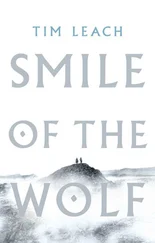When he had been a man, the Emperor had been called Marcus Aurelius, but there were few that could speak that name to him now. For he was not a man any more – not quite a god, but as close as one could come to being one on this earth.
Yet a god in exile. From time to time, his eyes would stray from the map of the Danubius, wander down and to the left. Across the marked and pitted surface of the table, to a scratch he had placed long before. If the map had extended that far, that scratch might have marked Rome, marked his home. The place he had not seen for many years. Precious little time left to him, he thought. So much that he could have done. Yet he spent the twilight of his life here upon the borders of the Empire, fighting a war against the barbarians, a war that it seemed would never end.
One by one, his generals came in, saluted, stood. Some he acknowledged as they entered, others he did not seem to notice as he sat absorbed in the writing, in his meditation over the map. They remained in silence – respectful, almost worshipful.
A messenger came. A sealed wax tablet handed to the Emperor, broken open, and then the tokens were marching across the map, gathering upon the Danubius itself. The Emperor no longer shivered and fidgeted, though the chamber had grown no warmer. He grew still, closed his eyes to slits, and stared down at the map. He waited.
The generals tried to mimic this stillness, though here and there one could see a line of sweat carving across the skin, a head tilting at some imagined sound. For they were not far from the place on the Danubius where they knew a battle was being fought. Countless times had the barbarians come crawling against their borders, and always they had sent them back. Yet always there was the fear that this would be the time unlike the others – that this would be the moment when the Empire fell. That they would hear the calling of the horns, the barbarian war cries, and know that their world was ending.
At last, another messenger entered the tent, one quite unlike the others. Bone weary, the wild eyes of a man who has traded one horse for another on a desperate journey. A man coming from battle with urgent news, with a steady hand he passed the sealed message to the Emperor.
The crack of a seal, a scraping of wax, the Emperor reading with an unhurried focus. The generals straining to read him, to interpret some sign of victory or defeat from a twitch at the corner of the mouth, the slightest furrowing of the brow. He let them try for a time – a quiet pleasure in keeping that knowledge from them.
At last, he lifted his head. ‘We have defeated them on the ice,’ he said.
A moment of release, as men clasped each other in arms, shared the proud words of the victorious. One hastily wiped tears from his eyes, for he had a mistress in the border towns and had not known if he would see her again. For a moment, they forgot that they were before a god.
Only the Emperor seemed unmoved. He watched the men with a quiet impatience, a schoolmaster watching unruly boys at play. And they saw it, one by one, and came once again to attention.
‘Forgive us, Caesar,’ one of them said. ‘We are glad to see the end, that is all. They shall not be back for many years. They shall starve on their side of the river.’
The Emperor wagged a pale finger at them. ‘No. Not this time.’
He made the generals wait to know his meaning as he sent for the captains of his cavalry. And when those men arrived – breathless, flushed, stinking of horse sweat – the Emperor had another moment’s hesitation. One captain in particular caught his eye – reddish-gold hair touched with silver, a certain sadness to the eyes. A man close to the end of his time in the Legions, and it was hard to send such a man to die.
But there was to be no turning back. The Emperor lowered his finger once more to point at a place on the map, and with an open hand he swept the tokens of wood and brass forward, past the river and into a place that they had never been before, not in a hundred years of war.
An intake of breath amongst the generals, a light in the eyes. For they knew then what the Emperor meant to do.
From the mist and the marsh, the figures came. Shadows at first, that might have been mistaken for the ghosts that were said to haunt the mire, or the witch-fires that lured men to join the dead. But soon those shadows resolved into men and women, leading their horses through the swamp. Black mud, a layer of ice over stagnant water, clumps of grass that seemed to offer solid footing, leading only to the choking mire. In winter, at least, it did not carry the stink of rot in the air.
They moved slowly, carefully, but from time to time a horse or rider still plunged deep into the mud, others gathering to wrestle them free. Their armour was tattered, their weapons hacked and broken, limbs thick-caked in mud and washed with stagnant water. The defeat was written upon their bodies, but they stood tall as they walked, trading songs as they picked their way through bog and tussock. They did not carry themselves like the defeated. And at the head of the company, wearing the crudely scratched mark of a captain on his armour, the sign of sword and circle, it was Kai who led them from the swamp.
Three days since the duel by the fire. Their numbers were changed – they had found others as they fled across the land: the half-dozen riders who had ridden to their fire on the third night; the lone boy trying to bury a dead friend in frozen ground; the pair of women mounted on a single horse whom they found camped at the edge of the swamp.
Others they had lost. The wounded boy at the first campfire who died, with a strange silent courtesy, before the dawn. A pair of brothers who had crept away in the night, taking their chances alone. A young woman stolen away by wound fever, who had been laughing around the fire one evening and was found dead in sweat-soaked blankets the following morning. Yet Kai counted more riders now in his company than at the start of the journey, and there was no captain who could ask for more than that.
He listened to the songs rise high as his warriors came to the edge of the swamp – they were hurrying then, horse and man, for the horses seemed to long for dry ground even more than their masters, to feel their hooves beating against the steppe. They had struggled and fought through the muck for days on end, miserable as falcons bound to a perch. Now it was time for them to fly once more.
Kai saw a number of the riders break ranks, their horses surging forward and tearing across the plains with all the reckless love that a horse has for speed. With the slightest smile on his lips, Kai watched them scrapping and squalling like a colony of sea birds on the cliffs, the restless testing of idle warriors.
Beside him, Tamura looked out at the riders who had broken away, restless as a mother whose children are ever proving elusive.
‘Should I call them back?’ she asked.
‘Let them ride free,’ said Kai. ‘There shall be no Romans here. Not yet, at least. Why not join them? You have earned a little freedom.’
The young woman flushed with the praise, her hands fiddling with the reins in her lap.
‘No. I should… I do not want to.’
‘Go, it is my wish.’
She hesitated a moment longer, as though waiting for some trap in his words. But then she was away, her heels to her horse and whooping like a child. And for a moment, Kai rode alone.
The firm ground had been beneath his horse for no more than a hundred heartbeats, but already the crossing through the marsh had taken on the quality of a fever dream, something he could not quite believe to be true. Back at the fire, after the duel, when he had first told them he intended to ride through the mire, he had not thought his captaincy would last the hour. It would have been much to ask of a fresh company hungry for battle, let alone men and women half broken by defeat. But though a few faces had paled at the suggestion, there was not a voice that spoke against him.
Читать дальше
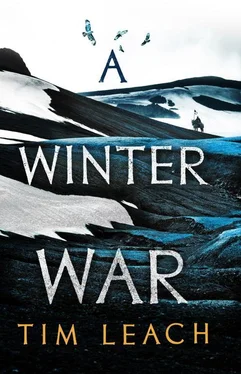
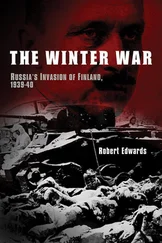

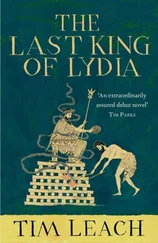
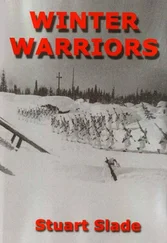
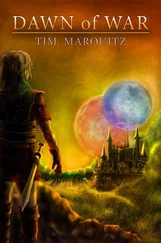

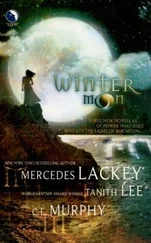
![Стюарт Слейд - Воины зимы [Winter Warriors ru]](/books/401383/styuart-slejd-voiny-zimy-winter-warriors-ru-thumb.webp)
